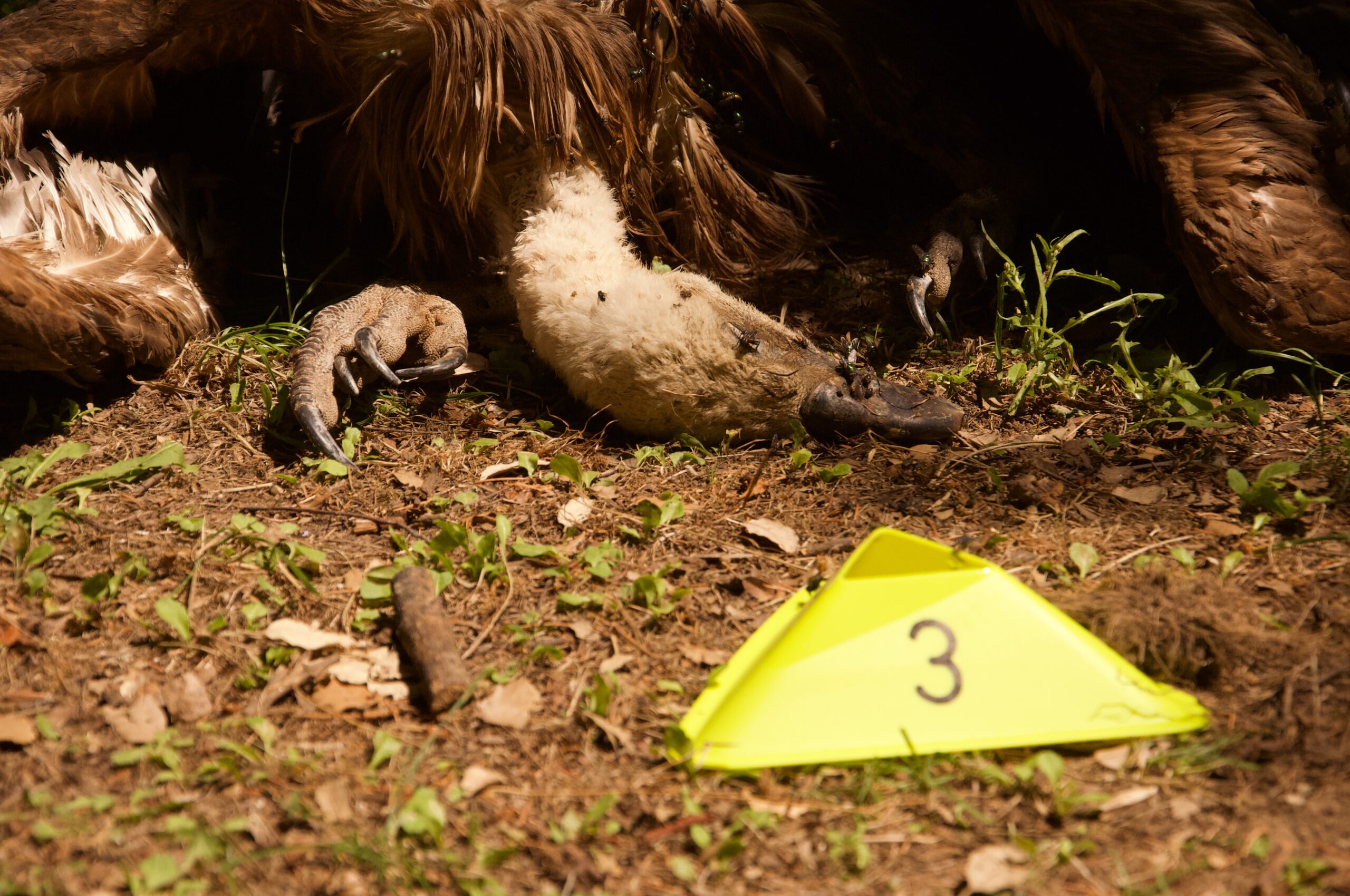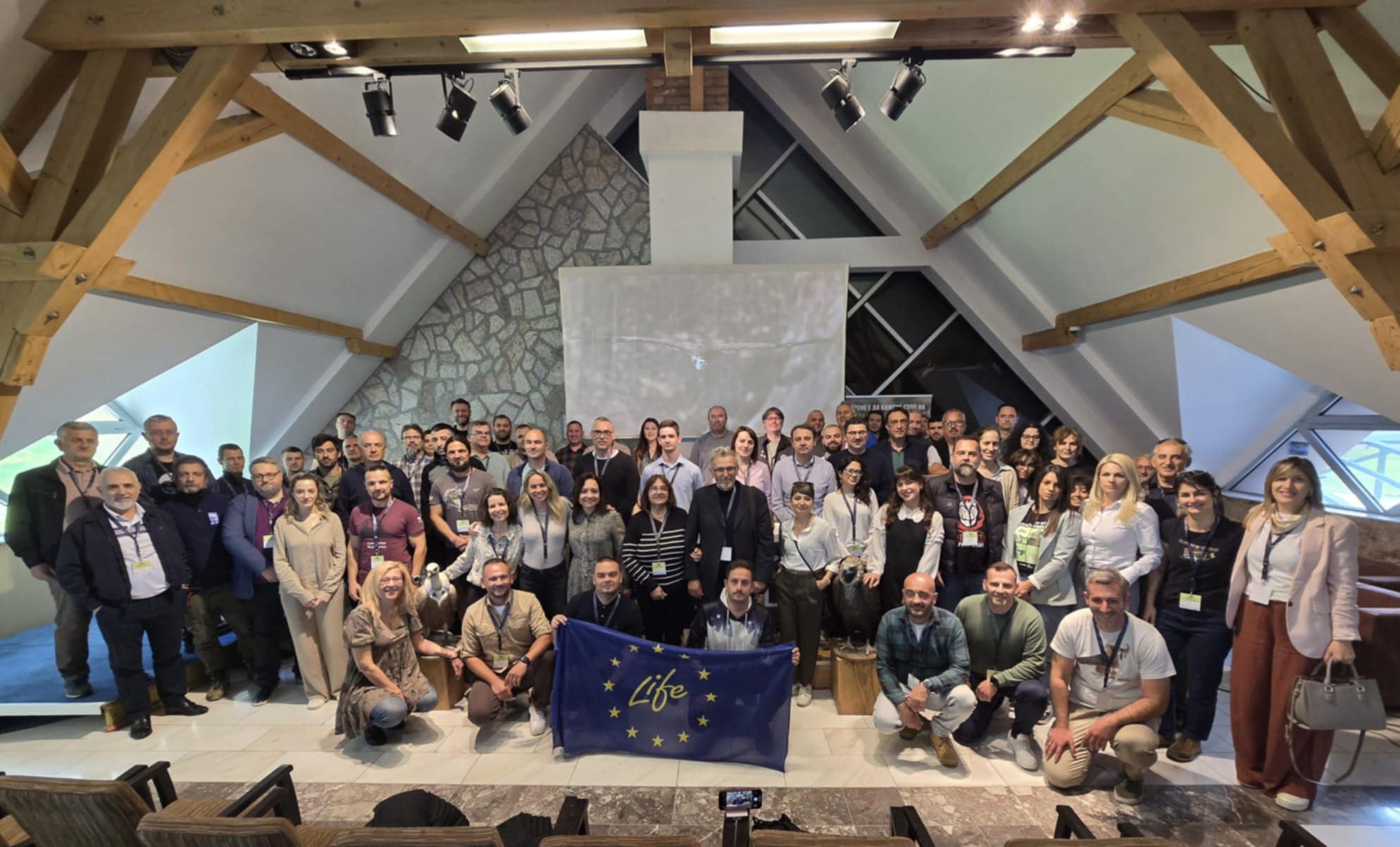
Two years ago, we received the shocking news that more than 2000 Hooded vultures (Necrosyrtes monachus) had been found dead in Guinea-Bissau, poisoned in order to feed the illicit trade on vulture parts associated with traditional beliefs and sorcery. At the time, the Vulture Conservation Foundation (VCF) was very active, engaging rapidly with the Guinea-Bissau authorities to organize an adequate response and ship three vulture carcasses to Lisbon, where the poison used was eventually identified. In an effort to mitigate the threat of poisoning in the country, we recently carried out a mission to enhance the capacities of local competent authorities and other stakeholders.
Guinea-Bissau experiences mass mortality of vultures
The mass killing of vultures in 2020 was the worst ever mass killing of vultures registered in the world. Unfortunately, these killings continued, albeit at a slower rate, with further poisoning episodes uncovered during 2021 and even as recently as this year – with 50 birds found dead in January 2022 and 32 birds reported dead, most without their heads, in May 2022.
Even though the 2020 vulture poisonings happened at a time of political instability and the start of the COVID-19 pandemic, the Guinea-Bissau authorities reacted very decisively and engaged with us and others in dealing, as far as possible, with the event. They collected and incinerated vulture carcasses, raise awareness with the local communities, and even identified a suspect, but the case never went far. However, in the killings that happened in 2021, the police were involved, and one suspect was brought to justice and condemned to a prison sentence of 3 years and a hefty fine of 850,000CFA. It confirmed the suspicion that the drivers of the poisonings are the commercial demand for vulture parts, some of it associated with neighbouring countries or individuals.
Building capacities to protect vultures in Guinea-Bissau


Ever since the first reports of these mass poisoning events, the VCF and others have planned to organize a mission to the country to help the authorities there to enhance their capacity to deal with this and mitigate further events. With some funding from the Raptors Memorandum of Understanding (Raptors MoU) within the Convention for Migratory Species (CMS), BirdLife International and the VCF, and also with the endorsement of the IUCN Vulture Specialist Group, a programme of work was developed. Unfortunately, the global pandemic made us postpone several times, but the mission has now happened this month.
Organized jointly with ODZH (a local conservation NGO) and IBAP (the government’s own protected areas agency), the mission organized two very successful workshops in the country. The facilitators were Andre Botha (from Endangered Wildlife Trust, who trained thousands of people across Africa on anti-poisoning response), Isabel Verón (from the Junta de Andalucía, a vet who specializes in wildlife necropsies) and José Tavares (the VCF’s director). One workshop focused on anti-poisoning response, including necropsies and collection of samples, while the other discussed the bases of a national vulture conservation plan in Guinea-Bissau, associated with the Multi-species action plan to conserve African-Eurasian Vultures (Vulture MsAP).
In total, about 50 police officers, protected area managers and wardens, veterinarians and NGO staff worked with us to enhance their capacity to deal with, mitigate, and promote vulture conservation at the national level. The mission was very successful, and all participants were very interested and engaged with the topic and committed to act and contribute to mitigating this threat.

During the stay, the team also visited Guinea-Bissau’s abattoir, where they could see 200+ Hooded vultures feeding at close quarters. They also discussed with local ornithologists and authorities opportunities and issues related to the monitoring and conservation of this critically endangered species, for which Guinea-Bissau is of crucial importance – data suggests that more than 20% of the world population lives in the country.












